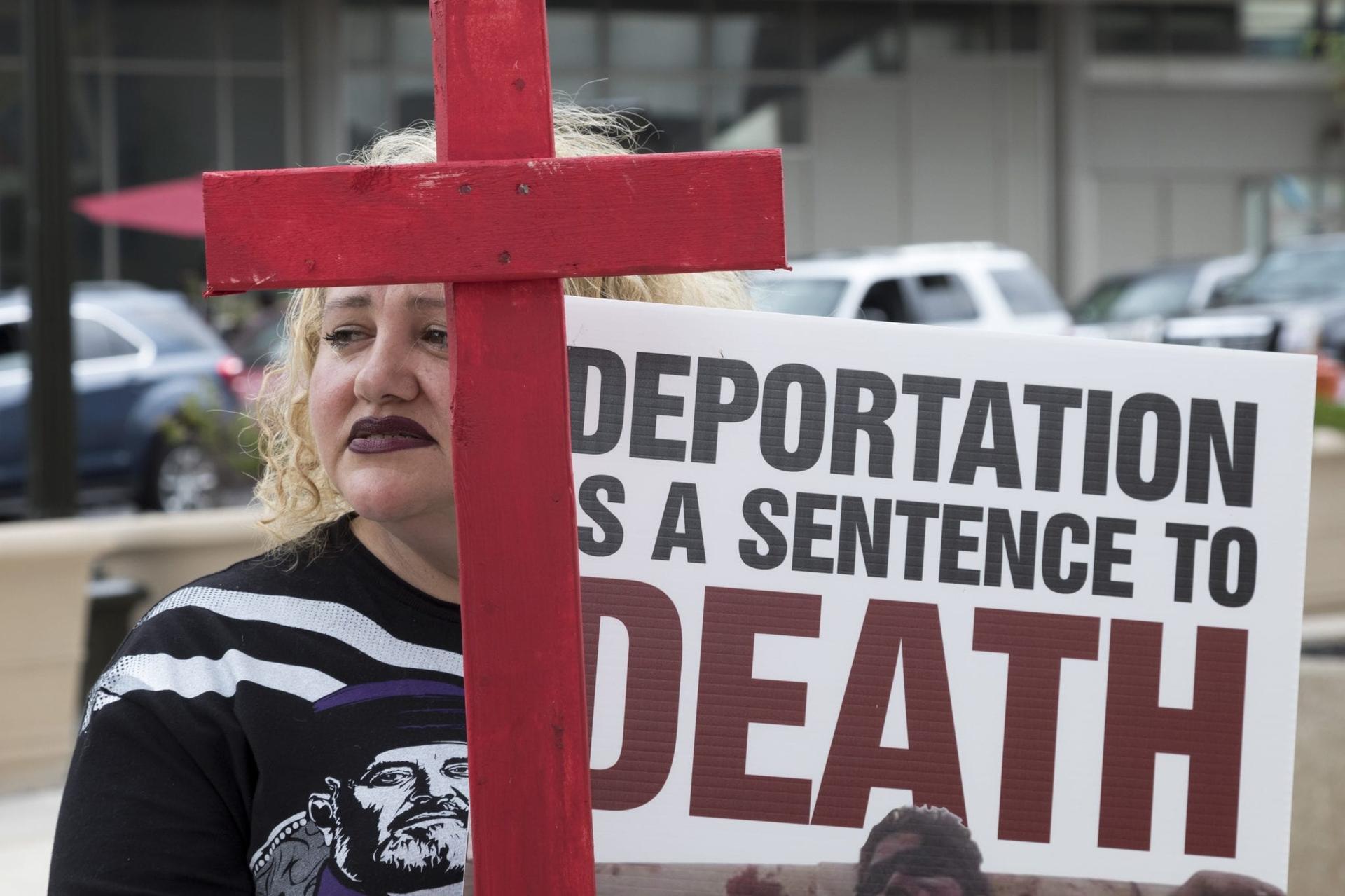DETROIT — The organizer of a June 16 protest in Detroit against federal agents’ rounding up more than 100 Iraqi-American immigrants told local media that those who were detained had no prior warning that Immigration and Customs Enforcement would be arresting them the morning of June 11.
Joined by U.S. Democratic Reps. Sander Levin and Brenda Lawrence of Michigan, members of the Chaldean Christian community gathered in front of the Patrick V. McNamara Federal Building. They held up signs, crosses and American flags, venting their frustration against federal authorities who detained their fathers, brothers and uncles, many of whom have been in the community for decades.
Martin Manna, president of the Chaldean Chamber of Commerce, organized the demonstration.
“I represent a rich cove of the Iraqi-Chaldean community, and when I called Martin Manna, I got here quickly,” Lawrence said. “Chaldeans are our friends, our neighbors.
“Why did ICE decide to target and round up Iraqi-Americans? Where is the written policy?” Lawrence asked, referring to the “verbal agreement” U.S. President Donald Trump had with the Iraqi government regarding accepting deportees from the United States.
Levin and five others from the Michigan delegation to the U.S. House of Representatives wrote a letter to U.S. Secretary of Homeland Security John Kelly, requesting a copy of the U.S. government’s agreement with Iraq so it can be subject to congressional oversight and to hold off on sending the detainees to Iraq until their safety can be guaranteed.
“We are here on behalf of the Chaldean community, proclaiming this as not only a Chaldean issue, but an American issue,” Levin said. “We’re saying to ICE, let there be time for justice. Sec. Kelly said, ‘we’re only going after the ‘worst of the worst.’ There arrests have been made without regard to what crime has been committed, or what sentences have already been served.
“This is a country that believes in due process for everybody, even for immigrants,” he continued. “America is more than just numbers, but the human lives behind them. I ask my colleagues, delay deportation. We’re here together for the Chaldean community.”
Family members of those who have been detained shared their stories, stating how many were preparing to attend Sunday Mass when ICE officials knocked on their doors, asking to go with them to the Iraqi Consulate; some were promised they would be returned to their homes.
“We’ve heard stories of an 80-year old man, who was carried away by ICE (Immigration and Customs Enforcement) in chains,” said Nidal Zawaideh of Bloomfield Hills, who showed up to protest to support her fellow Chaldeans. “They talk about the crimes they’ve committed. This man hit his wife 50 years ago, had the police called. But that was 50 years ago; these people are not a threat to society.”
After the roundup, ICE officials would not confirm the number taken into custody but said those arrested had criminal convictions, including for murder, rape, assault, burglary, weapons violations and drug trafficking. They said the action was the result of recent negotiations between the U.S. and Iraq, which had agreed “to take back Iraqi nationals convicted of crimes.”
WJBK-TV reported that an ICE spokesperson said that “each of these individuals received full and fair immigration proceedings, after which a federal immigration judge found them ineligible for any form of relief under U.S. law and ordered them removed.”
Father Anthony Kathawa, parochial vicar of St. Thomas Chaldean Catholic Church in West Bloomfield, said many in the parish and surrounding Chaldean parishes have called, asking for help and not receiving many answers.
“There is a lot of pain, confusion, with them asking questions and getting no answers,” Kathawa told The Michigan Catholic, newspaper of the Detroit Archdiocese. “We have to lean on our faith, because there are so many questions.”
He said that Bishop Francis Y. Kalabat, who heads the Chaldean Catholic Eparchy of St. Thomas the Apostle, based in Southfield, “has requested every parish celebrate a special Mass and maintain a Holy Hour at every Chaldean parish in the area.”
Kathawa couldn’t confirm how many of his parishioners have been detained, saying there have been many.
“The people that are detained … I never guessed they’d have a criminal background,” Kathawa said. “They are really involved in their parishes; they’ve brought great change to the community. Those who were convicted of crimes, they’ve paid their debt. Part of Christianity is believing in redemption, believing in forgiveness.”













